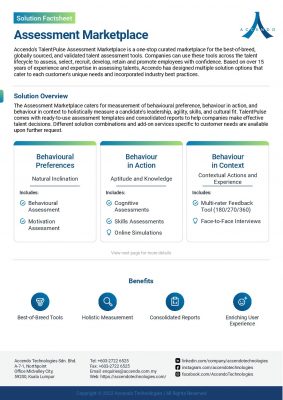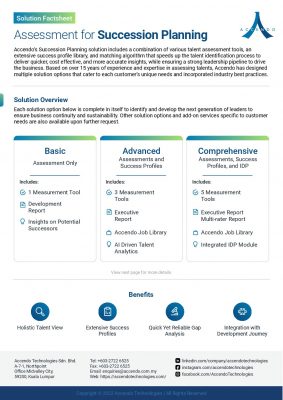SaaS, PaaS, IaaS, and so on. Confused?
Well, the IT spectrum these days is overwhelmed by a variety of services. Often a techie or a non-techie both need Google to tell what these acronyms mean.
Similarly, to add to the clan, today, we would elaboratively talk about UCaaS and several other details associated with this service.
To begin with, let’s decode a few of these tech textured acronyms,
- IaaS – Infrastructure as a Service
- PaaS – Platform as a Service
- SaaS – Software as a Service
- UCaaS – Unified Communications as a Service
What is UCaaS?
Times have changed, and so has technology. Hence it is essential to understand how telecom has impacted businesses worldwide. And UCaaS has the answer.
In simple terms, UCaaS is a power-packed combination of voice, video, and collaboration tools packed all in one solution, summed up as Unified Communications (UC). Even though communication is an important word in the world of business, it is essential to understand that it is no longer just limited to voice. UCaaS encompasses all streams of communications, with an aim to enable both internal and external communications.
Interestingly, along with traditional phone functions, UCaaS extends to video conferencing, web conferencing, and chats for better collaboration.
In the real world, when getting in touch with an employee or a group of employees at a large organization or working from a remote location, UCaaS offers several options to get in touch with the employees instantly.
As per Techopedia, “Unified communications as a service is a subcategory of software as a service (SaaS), where providers deliver software products and processes through the web.”
UCaaS: disaster recovery and business continuity
“Know your enemy and know yourself, and you can fight a hundred battles without disaster.”
This is exactly how a business continuity approach should operate. Because when disaster knocks on your on-premises UC infrastructure, work comes to a standstill followed by a series of consequences.
This is where UCaaS comes to your rescue. Therefore, it is essential to know that UCaaS not just offers a plethora of communication services but has inbuilt disaster recovery and business continuity plans.
Often businesses do not get candid about business continuity plans as they find it an overwhelmingly heavy and a negative task. However, UCaaS has some good news, as it can now be a knight in shining armor for your business at the time of need.
UCaaS offers businesses a plethora of benefits associated with recovery plans. It is a delight to learn that even in the event of a disaster, employees have the facility to access UC tools from remote locations via mobile or smart devices to stay connected and operate as usual. The COVID-19 pandemic is the most recent and relevant example of such a situation.
Additionally, users need to know that a large number of UCaaS providers support the backup of the entire communications platform. And the cherry on the cake is the availability of inexpensive cloud services.
In short, UCaaS supports business continuity and plays an essential role in minimizing financial losses.
UCaaS: decoding security risks
No technology is foolproof; all of them carry some pros and cons. And when we talk about unified communications, it is an area of service to pay more heed to because of its critical nature for business operations. It is also true that certain areas of business communication do not have alternatives but just one solution, i.e., UCaaS. Therefore, understanding the risks involved in this tech spectrum must be sacrosanct for every business.
Moving on, let’s find out about the top 4 risks associated with Unified Communications as a Service.
1. Minimal data center security
Ideally, it is recommended that a unified communications vendor must have data center facilities where they host their own instances of the UC platform with built-in redundancy.
It is also essential for the communications vendor to safeguard his customers from failures and maintain 24X7 support and staffing to be able to deliver remote backups for disaster recovery.
Businesses need to understand that every vendor does not strictly control data center environments with services such as multiple power sources and remote backups. Therefore, it is essential to choose a UCaaS vendor only after thorough homework.
2. Inadequate response to demand
It is natural for organizations to experience variation in the call volumes based on the demand for data services. For certain businesses, holidays could be a time where they experience a surge for calls and vice versa. Regardless of your business expecting similar variation in demand for UC services, it is essential to understand the bandwidth of the service provider to deal with such ups and downs.
Another prominent risk in this spectrum of technology is to understand if your organization can fall prey to poor voice calls or other collaboration services.
3. Poor data encryption
Irrespective of the services you sign up for, when it is IT, security is of paramount importance. Talking about UCaaS, it is essential to understand that calls are a form of data and need to be secure. However, to avoid failures, businesses should go for services that offer business continuity plans and associated services that lower risk.
Moreover, businesses need to understand that the vendors’ approach toward safeguarding customer data can either increase or reduce risk. This is where data encryption points need to be clarified before signing up for these services.
4. Security and access controls
In favor of business security, UC vendors should support your business by allowing employees access to a minimum amount of data that is essential to do their jobs right. This can happen only with the help of strong passwords, two-factor authentication, and automated password change policies.
The solution
Despite several risks associated with the unified communications technology, it is inevitable for businesses to adopt the same for several reasons as it is critical for business growth and success.
Switching to UCaaS on a positive note helps businesses alleviate several risks for your organization viz., security risks and collaboration challenges. Interestingly, a company gains several rewards and benefits by adopting the revolutionary communications services for collaboration locally and globally.
And to deal with the risk factor, all you need to do is do the right research, ask the right questions, and hire the right vendor depending on your business requirements.









































































